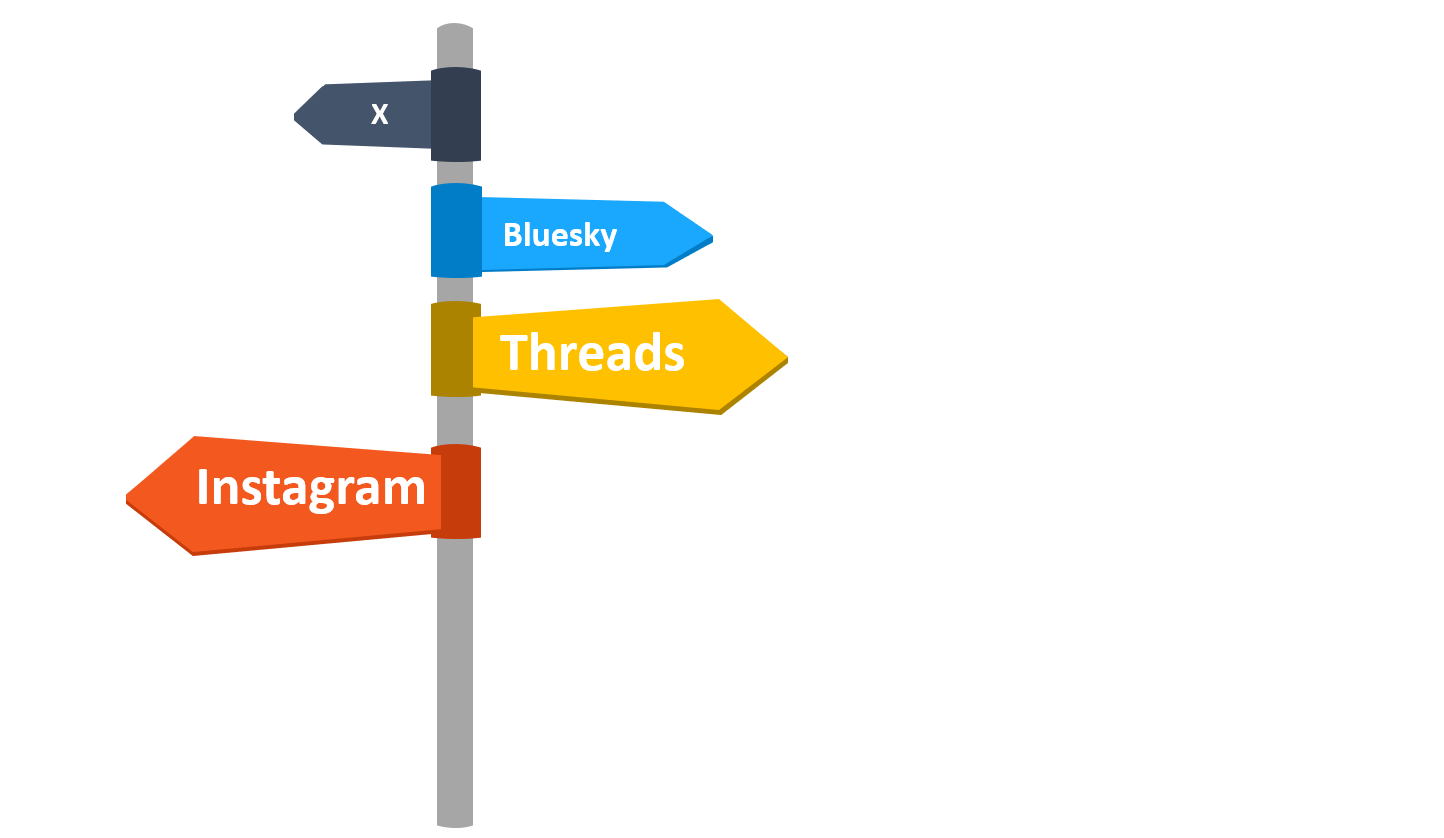
Ultimamente c’è parecchio movimento nei social di microblogging: continua l’abbandono del sempre più mefitico X (ex Twitter), da qualche giorno Threads è disponibile anche nell’Unione europea e ci sono varie altre opzioni che ricordano Twitter, come ad esempio Mastodon e Bluesky.
C’è chi ha aperto nuovi profili su diverse piattaforme e, in attesa di capire quale privilegiare, interagisce in qua e in là. Questa fase di spostamenti e assestamenti forse spiega perché in inglese ora mi pare di vedere usare con maggiore frequenza una parola informale che mi piace molto: elseweb, “da qualche altra parte nel web”, modellata su elsewhere, “altrove” e usata per indicare genericamente, senza specificarlo, un qualche altro luogo digitale (di solito un altro social, ma anche un sito).
Alcuni esempi d’uso:
I think a number of people I follow on here have just moved elseweb • I’m already following you elseweb but just wanted to tell you how much I appreciate your updates • I recognize you from elseweb :) • Do you have that posting elseweb by any chance? • Being followed by someone I’m a big fan of elseweb: Yay! • Where can one find you elseweb? • I’ve already seen that elseweb and it’s still funny and amazing • I saw your plan elseweb and thought it was genius! • if you want to get a hold of me I’ll be more responsive elseweb (mastodon, tumblr, discord primarily)
Elseweb non è una parola nuova: è in uso perlomeno da una quindicina di anni. Forse però ora sta diventando più rilevante.
Altri esempi di lessico legato ad attività sui social:
► Snitch tagging: gli spioni sui social
► Cos’è il deplatforming
► Crowdturfing, hashjacking e altre attività malevole
► Tweet aggressivi? CLIC!
Immagine: rielaborazione da presentationgo.com
